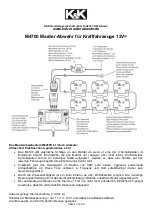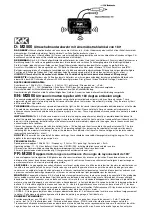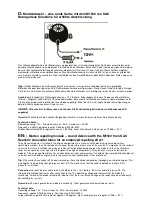
Roof rack
¤
Introduction
In this section you’ll find information about:
Attaching the roof rack base carrier and roof rack
Securing a load on the roof rack
The roof of your vehicle has been designed to optimize aerodynamics and does not have traditional
rain gutters that are used to attach many kinds of roof racks.
Since the rain gutters are molded into the roof to provide efficient aerodynamics, only base carrier
mounts and roof racks can be used that have been specifically designed and approved by their
manufacturer for your vehicle.
When should the roof rack be removed?
x
When it is no longer needed.
x
Before driving through an automatic car wash.
x
When the vehicle would otherwise be too high for minimum clearance to enter, for example, a
garage.
More information:
x
Lights
x
Transporting
x
Tires and wheels
x
Saving fuel and helping the environment
x
Parts, accessories, repairs and modifications
WARNING
Transporting heavy or bulky loads on the roof rack will change the way the vehicle handles
by shifting the vehicle's center of gravity and increasing the wind drag.
x
Always secure the load properly with suitable and undamaged straps so that the load will
not shift.
x
Cargo that is large, heavy, bulky, long or flat will have a negative effect on the vehicle's
aerodynamics, center of gravity and overall handling.
x
Always avoid sudden maneuvers and hard braking.
x
Always adapt your speed and driving to the heavier load and the weight distribution in the
vehicle. Take road, weather, traffic, and visibility conditions into account as well.
NOTICE
x
Always remove the roof rack before driving through an automatic car wash.
x
Your vehicle is higher when the roof rack is installed, especially when it is loaded. Compare
the vehicle height with existing clearance heights, such as underpasses and garage doors.
x
Always make sure that the roof rack system and anything being carried on it does not
interfere with the roof antenna, the power sunroof, or the rear hatch.
















































